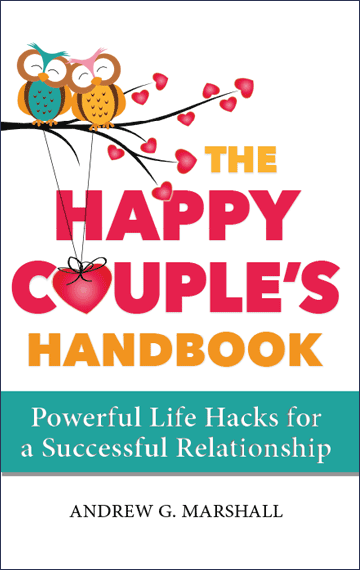You don't mean to let rip but you're tired, stressed and angry and out slips the bombshell that your partner takes to heart.
Later, you apologise, declare you didn’t mean it at all, and promise not to do it again, but you're left thinking: can't I even criticise him?
It brings to mind the advice of novelist Elizabeth Buchan:
If you are going to fling insults at your spouse, do so cleverly. Never say anything too devastating and too truthful. Those words can never be unsaid and will never be forgotten.
Here I list some common and usually much-regretted verbal volleys to avoid, followed by some advice on what to do instead.
It's over
You're arguing about something important– like the list of jobs she promised to tackle but hasn't, or how she’s treating your family – and one thing leads to another.
You think: if we can't solve this one little dispute, what hope is there for this relationship? So you tell her 'that's it' and threaten to call in the divorce lawyers.
Why it's so damaging: although hitting the eject button gets her attention, it is like negotiating with a gun to her head. She’ll say and do anything to restore peace but her heart isn't in what she's saying and later she'll back-pedal.
Worse still, it makes it harder to solve everyday disputes because one or both of you are frightened that it could explode into open warfare again, so everything is pushed under the carpet until it truly is impossible to continue.
Turn it round: understand why conflict is so hard that you threaten to quit – even when you don't really mean it.
In most cases, it's because your parents argued like cat and dog or, at the other extreme, never argued at all. Therefore you never learnt how to:
Disagree without it feeling like the end of the world.
Tolerate the upset without making personal remarks, or
Find a compromise that works for both of you.
Some basic work with a counsellor can actually turn this one around quite quickly. You’ll find that learning to disagree will actually bring the two of you much closer - I often say that it’s the most intimate thing a couple can do together.
I recommend my book The Happy Couple’s Handbook: Powerful Life Hacks for a Successful Relationship as a good starting-point.
You're stupid
The insults my clients report seem endless – like you're ugly, fat or a bad parent – such that sometimes it's hard to believe their claims to still love each other.
Why it's so damaging: you want to hurt, and because you know each other so well, you can really stick the knife in and twist it.
Not only do these remarks ruin self-esteem but unlike attacks on specific behaviour –for example being late to pick up your daughter – which can be easily changed, they go to the core of who your partner is and are either impossible or very difficult to alter.
Turn it round: if you're overly critical of your partner, you probably have high standards and are even harder on yourself.
Take a step back and think about where this critical inner-voice comes from. Ask yourself:
Does this contemptuous voice belong to one of your parents, but you've adopted it?
Did you feel like you were never good enough when you were a child?
Do you live life trying to be perfect so you can feel OK?
If you can start to be kinder to yourself, you will find it easier to be more tolerant of other people's failings.
I wish I were single
Your partner is always on at you about something; it seems that you never have a moment's peace to do what you want and you're wondering why you ever agreed to get married. You look at divorced or single friends and envy their peaceful solitude and clutter-free, minimalist apartments.

Why it's so damaging: this goes to the very foundations of your relationship and puts everything into question. Worse still, these remarks are said in anger and some people believe that's when the truth comes out – making it doubly difficult to take back when you've calmed down.
Turn it round: everybody wonders what their life might have been like if they'd chosen another path, and everybody needs a bit of personal space from time-to-time.
Most likely, though, you let this cruel jibe slip out because you were on the back foot and felt under attack or unfairly criticised. Anger is the weakest response to an insult. It shows that you've taken the jibe on board and therefore it must have some truth.
This might seem counter-intuitive but the strongest response is to consider your partner's complaint (that triggered your retaliation) and discuss the issues calmly.
You're boring
Your relationship is in a rut. You only talk about the kids or to give each other jobs to do, and seldom have fun together any more.
Why it's so damaging: there is a real problem here that needs to be addressed, but criticism will just put your partner’s back up and stop him listening. Worse still, it squashes down the creativity needed to solve this common dilemma.
Turn it round: because it's easier to take the speck out of someone else's eye than the plank out of our own, criticism often says more about us than the other person.
So why are you bored? Are you expecting your partner to be your own personal entertainment committee? How could YOU bring the spark back into your relationship?
Perhaps you could show an interest in one of his hobbies or suggest starting a new one together.
You're not pulling your weight

It could be about earning money, childcare or jobs around the house but you think she's making you shoulder the bulk of the responsibility.
Why it's so damaging: when she feels cornered, she will either list everything that she does do – which makes you think she hasn't taken you seriously–or go on the counter-attack and belittle your contribution.
Before long, you're in a race to the bottom to find out who can hurt the other the most.
Turn it round: carrots work better than sticks. Next time your partner makes a small step in the direction that you'd like – for example offering to take time off work to cover a gap in childcare – praise what you do like (which encourages more of the same) rather than complaining 'that's the least than you can do' or 'about time too' (which will demotivate).
Alternatively, introduce the topic in a neutral manner: 'we have a problem with...' and become a team to solve the problem together.
I fancy someone else
There’s someone you've met at work, at the gym or the school gates and you've chatted and exchanged a few pleasantries and you've begun to look forward to seeing them.
Why it's so damaging: although it's fine to find other people beyond your partner attractive, it's dangerous to make her jealous and focus her attention on one rival.
Also I doubt that your partner will have enough self-belief not to think your comments are a direct attack on her attractiveness.
Turn it round: we live in a highly sexualised world–with adverts, TV programmes etc that are designed to titillate. Instead of constantly switching yourself off, like some maiden aunt, allow the desire to simmer during the day so when you and your partner are back together again there's something to build on.
However, if she asks a direct question about a particular work colleague or friend, it is important to answer truthfully–rather than dismiss or ridicule the idea. Perhaps she has spotted a boundary has been crossed and her fears need to be taken seriously.
You're just like your father

Or your mother, or your brother….or even, you're turning me into my mother!
Why it's so damaging: we like to think that we're individuals in our own right rather than copies of our nearest and dearest. However, you've probably hit on the truth–because the older we become the more likely we are to turn into our parents–and that can make us feel very uncomfortable.
Turn it round: if you have something difficult to say, try injecting some humour. It undermines any potential insult and defuses tension (and therefore the whole situation).
It's especially important if you're saying he's making you behave like a member of your family. After all, he can't be responsible for how you chose to act. So make light of the problem – for example 'and I complain so little about it.'
Nothing at all
While some couples are quick to fall out, others are so keen to avoid an argument that they bite their tongue, tell themselves it doesn't matter and change the subject.
Why it's so damaging: you can't just switch off unwelcome feelings (like upset, anger and resentment) because pretty soon you're switching off the positive ones too (like love, desire and joy).
In fact, not arguing enough is one of the main reasons why couples reach 'I love you but I'm not in love with you' (see my book I Love You But I’m Not In Love With You: Seven Steps to Saving Your Relationship).
Furthermore, making something into a forbidden subject just gives it more power. Once everything is out in the open, even the most challenging problems seem less frightening and more manageable.
Turn it round: if you can deal with the small niggles as they happen, they won't build up into a crunch. Even better, you'll be honing your communication skills while the stakes are low, so that when you face something tougher you'll be in good shape.
These skills include :
Tackling one topic at a time
Listening to what your partner is saying
Believing that from where she stands everything he says is true
Keeping a sense of proportion
Negotiating so you both get something you want.
Ultimately, what matters is not the obstacle but how you deal with it.
Eight things you SHOULD say

I agree about ....
If you're too busy trying to dismantle your partner's case, you won't acknowledge the common ground. Instead, remind him of what unites you – like 'we both want what’s best for the kids’ - and build teamwork.
You made a good point there
Couples that are good at arguing, unwittingly reassure each other that it's OK to disagree, and keep everything civil by giving small compliments along the way.
Thank you
Everybody likes to think their contribution is noticed and appreciated.
I miss you when you're not around
This shows that your lives are intertwined, and how you're thinking of her even when she's not there.
Sorry
Never underestimate the power of a heartfelt apology.
I love you.
Couples get into trouble when they start taking each other for granted. You can increase the power by adding an example: 'I love your patience' or 'I love your generosity'.
Hello sexy...
It is great to flirt, tease and joke around together rather than be overwhelmed by the serious business of raising children and running a home together.
Why?
Instead of describing the problem – often in endless detail - try asking a question. For example: 'Why is this so painful?' or 'Why did you.....?'
It will totally transform your conversation.
In other news, I had a wonderful time talking to UK therapist Dr Libby Nugent for a recent episode of The Meaningful Life With Andrew G. Marshall podcast.
We used the wonderful Frau Holle fairytale to discuss the idea of feeling “world-weary” - exhausted to the very bone, such that the usual diversions no longer work - and how fantasy and play can help us find our way back.
It’s a great episode if you’ve experienced:
Strains in relationships with your children or parents
Anxiety about reaching high-pressure goals
A nagging sense that you’re missing out on other ways to approach life
You can listen to our conversation here or find out more about Libby’s therapy or fairytale analysis.
And as always, if it feels like the right time to start marital therapy, send an email to Tricia (tricia@andrewgmarshall.com) for a virtual or in-person appointment with one of my team of therapists in London, or with me here in Berlin.
With love,
Andrew






